Intro
The COVID-19 pandemic has affected millions of people worldwide, causing widespread illness and disruption to daily life. As the virus continues to evolve, it's essential to stay informed about the symptoms and how to protect yourself and your loved ones. COVID-19 symptoms can range from mild to severe, and it's crucial to recognize them early to seek medical attention if necessary. In this article, we'll delve into the common symptoms of COVID-19, their severity, and what you can do to manage them.
The symptoms of COVID-19 can vary from person to person, but the most common ones include fever, cough, and shortness of breath. Some people may experience mild symptoms, while others may develop severe pneumonia, acute respiratory distress syndrome, or even death. The virus can also cause symptoms like fatigue, headache, and sore throat, which can be similar to those experienced during a common cold or flu. However, if you're experiencing any of the following symptoms, seek medical attention immediately: difficulty breathing, chest pain or pressure, blue-colored lips or face, severe headache, or confusion.
As the pandemic continues to spread, it's essential to understand the different types of COVID-19 symptoms and how they can affect individuals. Some people may experience gastrointestinal symptoms like diarrhea, nausea, and vomiting, while others may have neurological symptoms like dizziness, confusion, or seizures. The virus can also cause skin rashes, hair loss, and other unusual symptoms. It's crucial to stay informed and consult a healthcare professional if you're experiencing any unusual or severe symptoms.
Common Symptoms of COVID-19
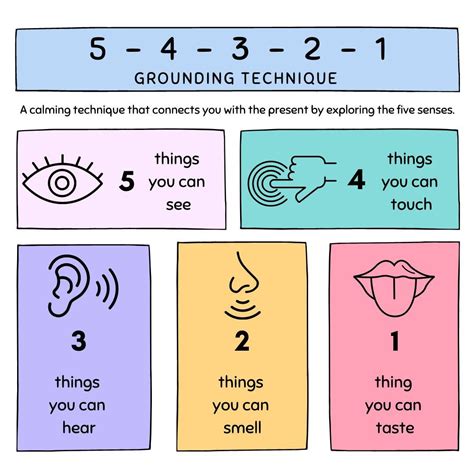
The common symptoms of COVID-19 can be divided into several categories, including respiratory, gastrointestinal, neurological, and skin symptoms. Respiratory symptoms include cough, shortness of breath, and difficulty breathing, while gastrointestinal symptoms include diarrhea, nausea, and vomiting. Neurological symptoms can range from mild headaches to severe confusion, seizures, or even stroke. Skin symptoms can include rashes, hair loss, and other unusual skin changes. It's essential to recognize these symptoms early and seek medical attention if necessary.
Respiratory Symptoms
Respiratory symptoms are the most common symptoms of COVID-19, and they can range from mild to severe. Some people may experience a mild cough or shortness of breath, while others may develop severe pneumonia or acute respiratory distress syndrome. Respiratory symptoms can be caused by the virus itself or by secondary bacterial or fungal infections. It's crucial to seek medical attention if you're experiencing any respiratory symptoms, especially if you have a pre-existing medical condition or are older than 65.Gastrointestinal Symptoms
Gastrointestinal symptoms are less common than respiratory symptoms but can still be severe. Some people may experience diarrhea, nausea, or vomiting, which can lead to dehydration and electrolyte imbalances. Gastrointestinal symptoms can be caused by the virus itself or by secondary bacterial or viral infections. It's essential to stay hydrated and seek medical attention if you're experiencing any gastrointestinal symptoms, especially if you have a pre-existing medical condition or are older than 65.Severe Symptoms of COVID-19
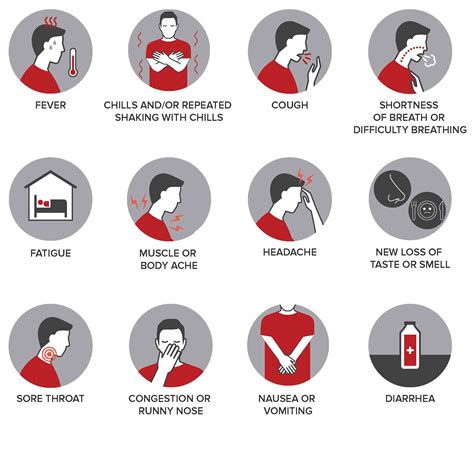
Severe symptoms of COVID-19 can be life-threatening and require immediate medical attention. Some people may experience severe pneumonia, acute respiratory distress syndrome, or even sepsis. Severe symptoms can be caused by the virus itself or by secondary bacterial or fungal infections. It's crucial to seek medical attention if you're experiencing any severe symptoms, especially if you have a pre-existing medical condition or are older than 65.
Acute Respiratory Distress Syndrome (ARDS)
ARDS is a life-threatening condition that can be caused by COVID-19. It's characterized by inflammation and scarring in the lungs, which can lead to respiratory failure. ARDS can be caused by the virus itself or by secondary bacterial or fungal infections. It's essential to seek medical attention if you're experiencing any symptoms of ARDS, such as severe shortness of breath, chest pain, or blue-colored lips or face.Sepsis
Sepsis is a life-threatening condition that can be caused by COVID-19. It's characterized by a severe inflammatory response to an infection, which can lead to organ failure. Sepsis can be caused by the virus itself or by secondary bacterial or fungal infections. It's crucial to seek medical attention if you're experiencing any symptoms of sepsis, such as severe headache, confusion, or difficulty breathing.Managing COVID-19 Symptoms
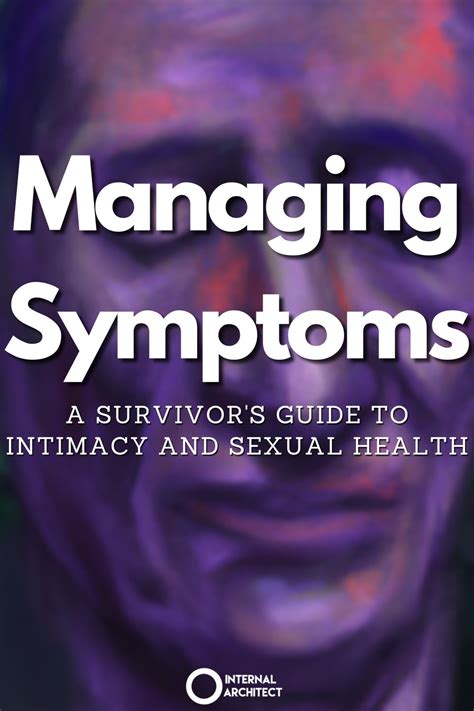
Managing COVID-19 symptoms requires a comprehensive approach that includes rest, hydration, and medication. Some people may require hospitalization or oxygen therapy, especially if they have severe symptoms or pre-existing medical conditions. It's essential to stay informed and consult a healthcare professional if you're experiencing any symptoms of COVID-19.
Rest and Hydration
Rest and hydration are essential for managing COVID-19 symptoms. It's crucial to stay hydrated by drinking plenty of fluids, such as water, juice, or broth. Rest can help your body recover from the infection, and it's essential to avoid strenuous activities or exercise. You can also use a humidifier to add moisture to the air, which can help relieve congestion and cough.Medication
Medication can help manage COVID-19 symptoms, especially if you have a pre-existing medical condition or are older than 65. Some people may require antiviral medication, such as remdesivir or lopinavir, to treat the infection. Others may require medication to manage symptoms like fever, cough, or shortness of breath. It's essential to consult a healthcare professional before taking any medication, especially if you have a pre-existing medical condition or are taking other medications.Preventing COVID-19
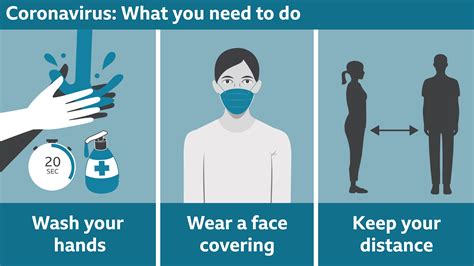
Preventing COVID-19 requires a comprehensive approach that includes vaccination, social distancing, and hygiene practices. Vaccination is the most effective way to prevent COVID-19, and it's essential to get vaccinated as soon as possible. Social distancing can help reduce the transmission of the virus, and it's crucial to avoid close contact with people who are sick. Hygiene practices, such as washing your hands frequently and wearing a mask, can also help prevent the transmission of the virus.
Vaccination
Vaccination is the most effective way to prevent COVID-19. The COVID-19 vaccine can help prevent severe illness, hospitalization, and death. It's essential to get vaccinated as soon as possible, especially if you have a pre-existing medical condition or are older than 65. You can consult a healthcare professional to determine the best vaccination schedule for you.Social Distancing
Social distancing can help reduce the transmission of the virus. It's crucial to avoid close contact with people who are sick, and to maintain a distance of at least 6 feet from others. You can also use technology, such as video conferencing, to reduce the need for in-person interactions. Social distancing can help prevent the transmission of the virus, especially in high-risk settings like hospitals, schools, and public transportation.Coping with COVID-19
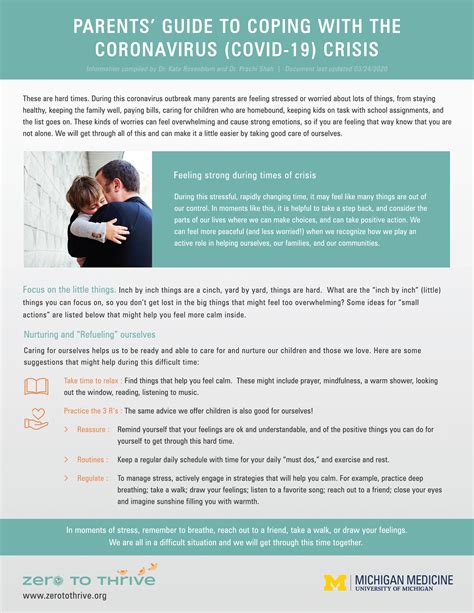
Coping with COVID-19 requires a comprehensive approach that includes mental health support, social support, and self-care practices. Mental health support can help you manage stress, anxiety, and depression, which can be exacerbated by the pandemic. Social support can help you stay connected with loved ones, which can be essential for your mental and emotional well-being. Self-care practices, such as exercise, meditation, and hobbies, can help you manage stress and maintain a sense of purpose.
Mental Health Support
Mental health support is essential for coping with COVID-19. The pandemic can cause significant stress, anxiety, and depression, especially if you have a pre-existing mental health condition. It's crucial to seek mental health support if you're experiencing any symptoms, such as feelings of sadness, hopelessness, or irritability. You can consult a mental health professional or use online resources, such as hotlines or support groups, to get the help you need.Social Support
Social support is essential for coping with COVID-19. The pandemic can cause social isolation, which can exacerbate mental health symptoms. It's crucial to stay connected with loved ones, which can be essential for your mental and emotional well-being. You can use technology, such as video conferencing or social media, to stay connected with others. You can also participate in online communities or support groups to connect with others who are experiencing similar challenges.Conclusion and Next Steps

In conclusion, COVID-19 is a complex and evolving pandemic that requires a comprehensive approach to prevention, management, and coping. It's essential to stay informed about the symptoms, risks, and prevention strategies to protect yourself and your loved ones. By taking a proactive approach to COVID-19, you can reduce your risk of infection, manage symptoms, and cope with the emotional and mental challenges of the pandemic.
We invite you to share your thoughts, experiences, and questions about COVID-19 in the comments section below. Your input can help us better understand the pandemic and provide more effective support to those who need it. You can also share this article with others to help raise awareness about COVID-19 and promote prevention and coping strategies.
What are the most common symptoms of COVID-19?
+The most common symptoms of COVID-19 include fever, cough, and shortness of breath. Some people may also experience fatigue, headache, and sore throat.
How can I prevent COVID-19?
+You can prevent COVID-19 by getting vaccinated, practicing social distancing, and following hygiene practices like washing your hands frequently and wearing a mask.
What should I do if I experience severe symptoms of COVID-19?
+If you experience severe symptoms of COVID-19, such as difficulty breathing, chest pain, or confusion, seek medical attention immediately. You can call emergency services or visit the nearest hospital.
How can I cope with the emotional and mental challenges of COVID-19?
+You can cope with the emotional and mental challenges of COVID-19 by seeking mental health support, staying connected with loved ones, and practicing self-care activities like exercise, meditation, and hobbies.
What are the risks of COVID-19 for people with pre-existing medical conditions?
+People with pre-existing medical conditions, such as diabetes, heart disease, or lung disease, are at higher risk of severe illness and complications from COVID-19. It's essential to take extra precautions to prevent infection and seek medical attention if you experience any symptoms.
